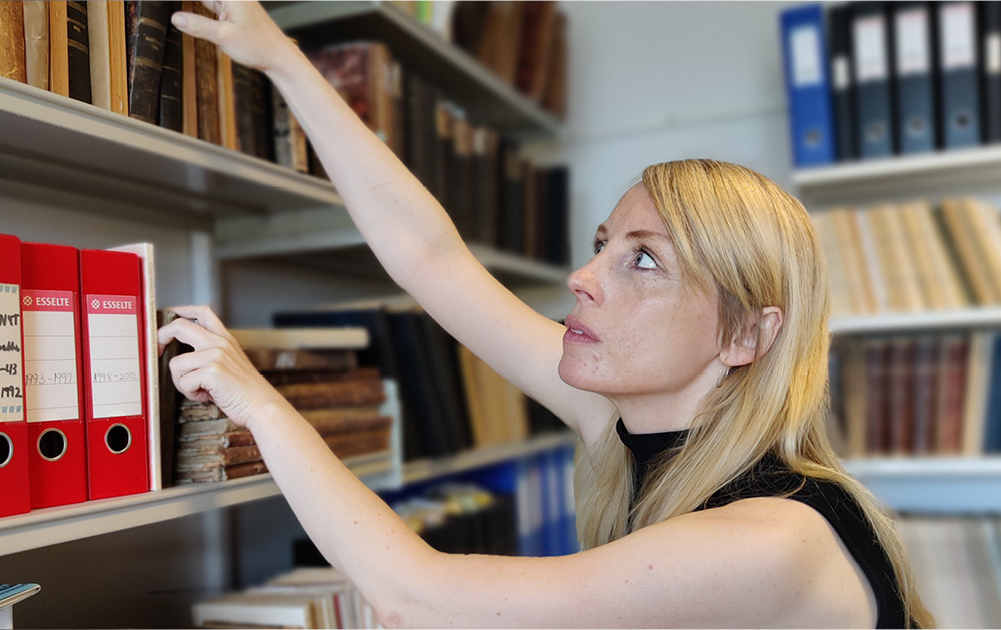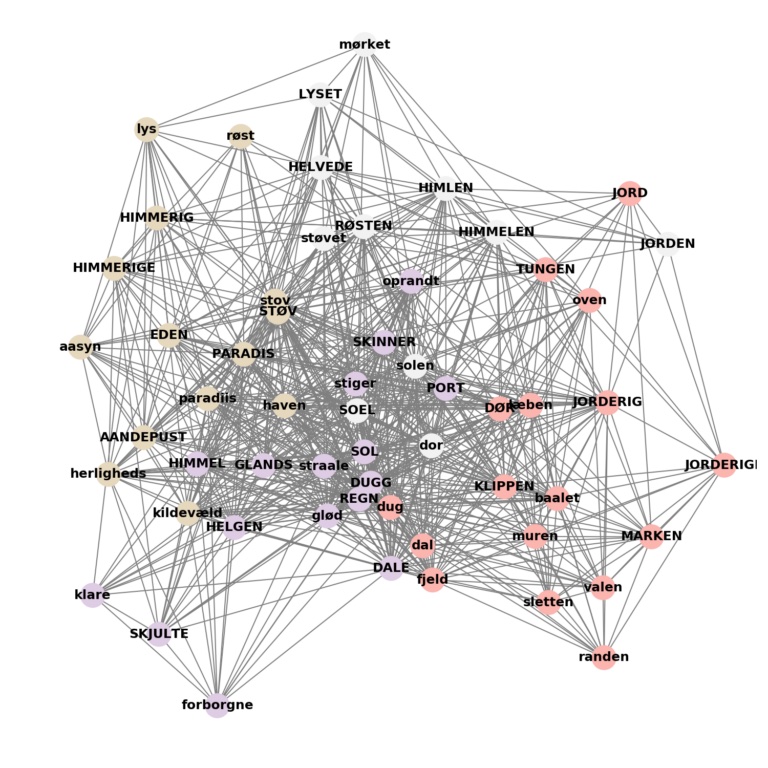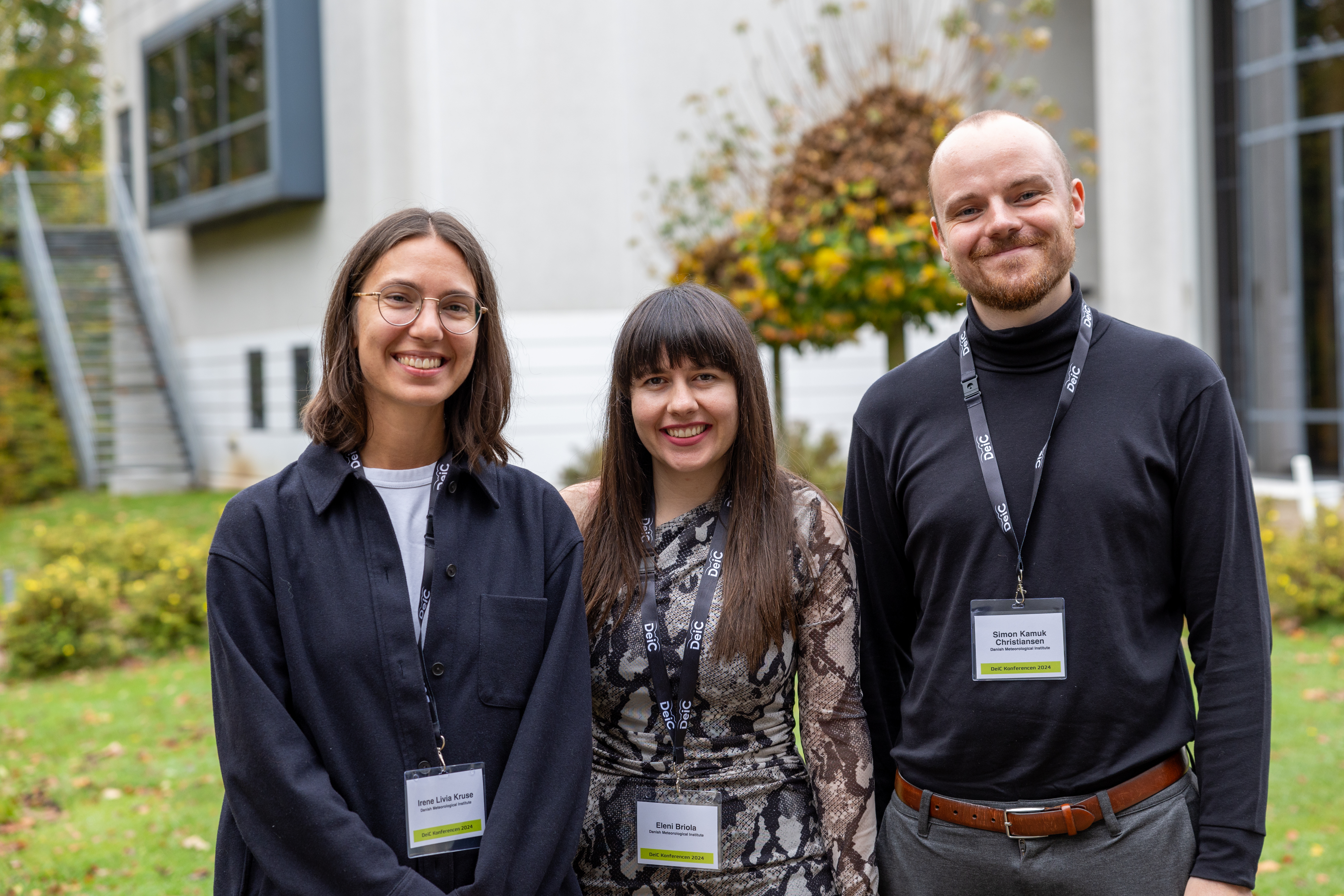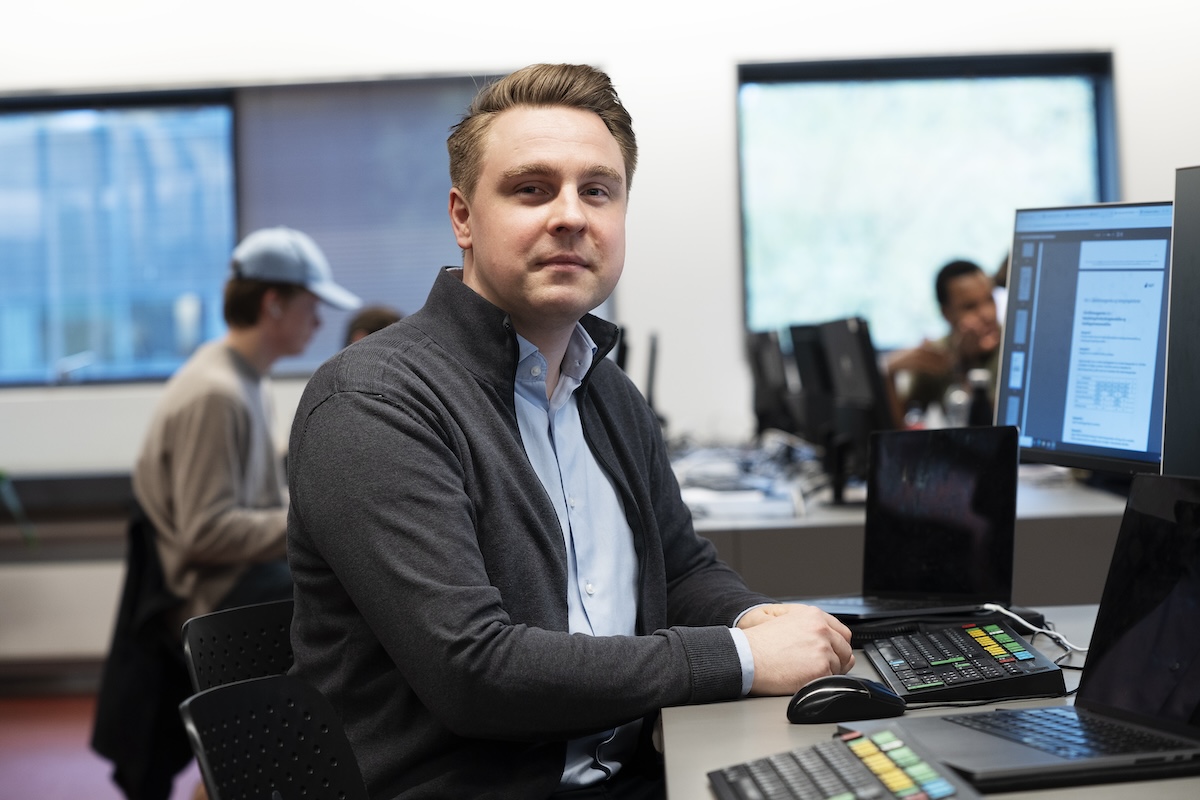
Digital humanities - a growing trend
Supercomputing has long been associated with areas such as physics, engineering, and data science. However, researchers in humanities at Aarhus University are increasingly turning to supercomputing allowing them to delve into unexplored territories and discover new insights.
From analyzing historical archives to simulating ancient civilizations to analyzing social media data, supercomputing offers unique opportunities to generate insights and advance knowledge in humanities.
AI powered text analysis
Katrine Frøkjær Baunvig, head of the Grundtvig Center at Aarhus University has used supercomputing as a methodological approach, and it has led her to conclusions that significantly impact our understanding of 19th-century nation builder and prominent pastor N.F.S. Grundtvig ‘s vast body of works and his immense influence on Danish culture.
In order to conduct a certain type of text mining, so-called word embeddings, she has created an artificial intelligence of Grundtvig, enabling a comprehensive analysis of his over 1000 works and 8 million words, resulting in unprecedented insights.
Katrine Frøkjær Baunvig has used the DeiC Interactive HPC system for a range of NLP tasks such as linguistic normalization of historical Danish, semantic representation learning and inference, and finally, historical chat bot development based on custom Large Language Model for Danish. Her work exemplifies how researchers in the humanities are increasingly utilizing HPC tools to unveil new perspectives.

Grundtvig’s worldview: analysed by Katrine Frøkjær Baunvig in the upcoming paper ”Benign Structures. The Worldview of Danish National Poet, Pastor, and Politician N.F.S. Grundtvig”.
A scientifically valid approach
This approach has ushered in a completely new era in Grundtvig research, according to Katrine Frøkjær Baunvig. She dismisses the criticism of digital humanities sceptics who argue that word embedding fails to consider the surrounding context of words.
“This type of rejection is prevalent only among researchers who have not taken the time to understand or familiarize themselves with the current state and level of the research. When creating a word embedding, I obtain a vast mapping of a given word’s extensive association structure. Therefore, I can clearly discern different semantic focal points and contexts where the word appears in Grundtvig’s body of work. This is precisely what allows me to gain an overview.” Katrine Frøkjær Baunvig, Head of the Grundtvig Center at Aarhus University.
Seek collaborations and explore the tools
Katrine Frøkjær Baunvig opted to form a research partnership with the Center for Humanities Computing at Aarhus University. Her best advice for other researchers going into supercomputing in the humanities is to team up with the right people.
“Stepping into the world of supercomputing requires an approach to work processes that, in my opinion, represents a new trend in the humanities, namely, interdisciplinary collaborations and team-based publishing. Someone takes care of what is typically called the domain expert area – in this case, knowledge of Grundtvig’s authorship – while others handle the more technical aspects of execution.” Katrine Frøkjær Baunvig, Head of the Grundtvig Center at Aarhus University.
She also emphasizes the importance of comprehending the workings of the tools to better harness the power of supercomputing.
“Even if you may not be able to train your algorithm yourself, it can be very practical to devote time and energy to obtain an operational understanding of the steps involved in creating a Grundtvig-artificial intelligence and the various types of applications such an intelligence can be used for.” Katrine Frøkjær Baunvig, Head of the Grundtvig Center at Aarhus University.
Vast opportunities for digital pioneers
With years of experience in using supercomputing in her research, Katrine plans to continue using it and encourages others to do so when it seems fit. Especially in times where humanities research is often dismissed as lacking scientific rigor, Katrine Frøkjær Baunvig sees an opportunity to make an impact. With a keen sense of responsibility to bring her field forward, she is determined to prove that humanities research can be just as methodical and rigorous as research in any other discipline.
“Researchers who have pioneering eagerness should explore supercomputing as it can give them a head start by venturing into “blue ocean” territory.”, Katrine Frøkjær Baunvig, Head of the Grundtvig Center at Aarhus University.
Are you interested in using DeiC Interactive HPC?
Read more about DeiC Interactive HPC here
Read more about access to DeiC Interactive HPC here and read about activities and services here
Find your local Front Office where you can get help to get started
You can also contact the head of DeiC´s HPC-team Eske Christiansen, eske.christiansen@deic.dk
This story was originally written and published by Center for Humanities Computing, AU for Deic Interactive HPC as part of a series on Interactive HPC usage in humanities See story here




